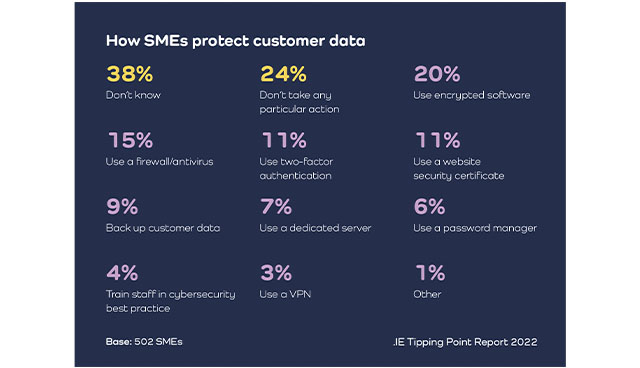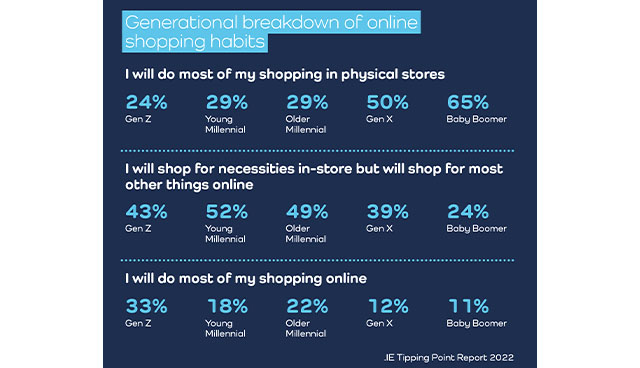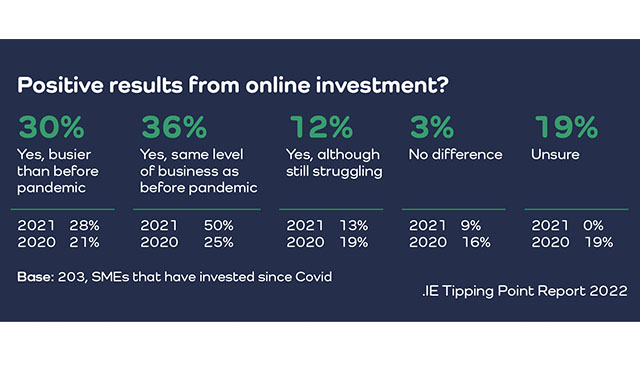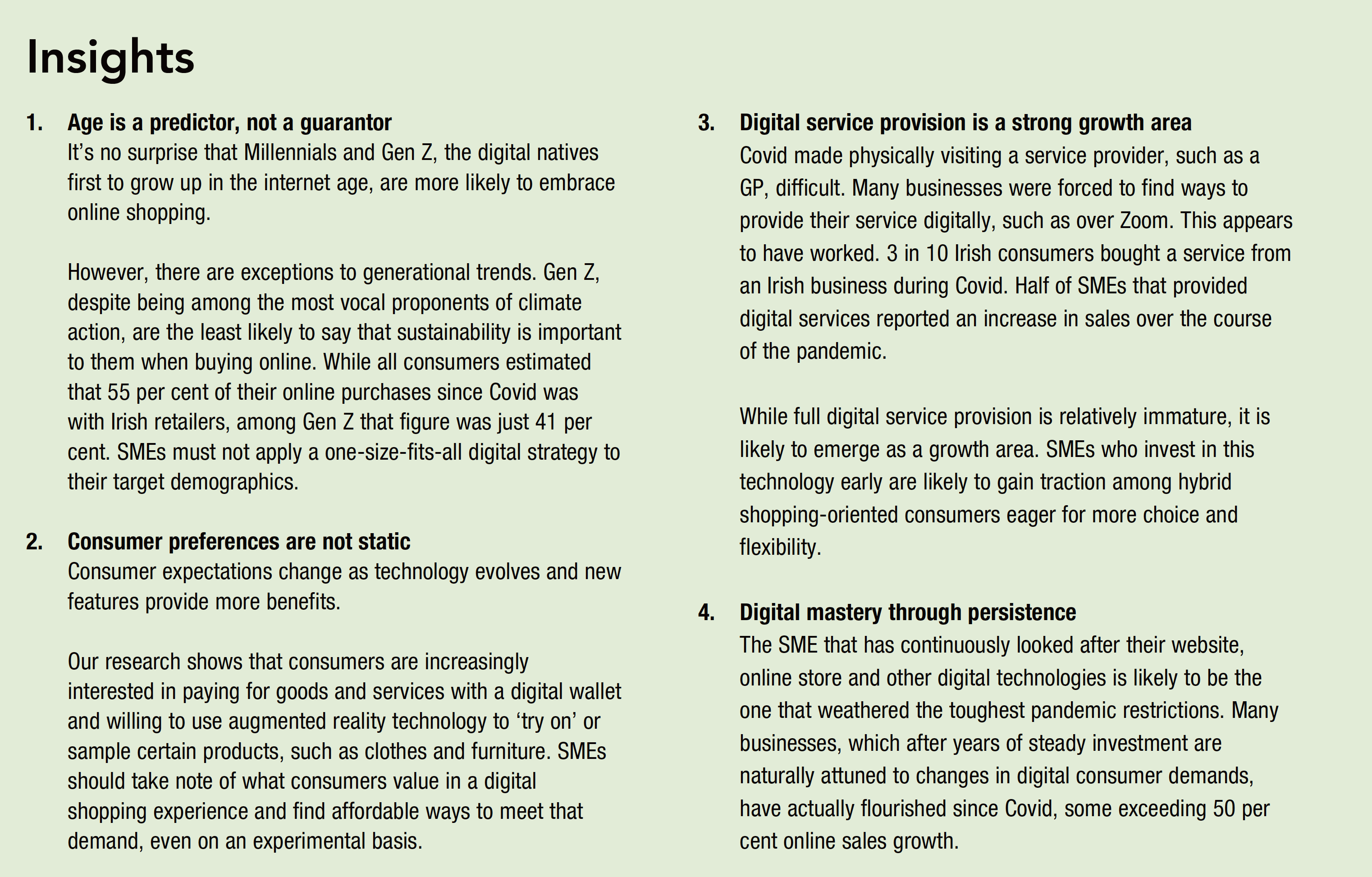Covid proves a tipping point for digital business

The Covid pandemic has forced SMEs to view websites as dynamic sales enablers or points of sale. Now SMEs will need help with cybersecurity for their expanded digital presence, writes David Curtin, CEO of .IE, the company that manages .ie domains, the preferred online identity for business in Ireland.
The .IE Tipping Point report, Irish e-commerce and digital business in the post-Covid era, is the final report of a trilogy of research analysing consumer and SME behaviour and attitudes since the pandemic.
A tipping point has been passed. Consumers have fully embraced the convenience of online shopping. In response, SMEs have been forced to adapt, digitally and increasingly attitudinally, transforming their static brochure websites into e-commerce hubs. There is also evidence that SMEs are not prioritising protection of customers’ data despite this being a big concern for individual consumers.
Key findings
Cybersecurity is non-negotiable

In an era of high-profile cyberattacks, 75 per cent of consumers are ‘very’ or ‘somewhat concerned’ about the security of their personal information when shopping online. However, six in 10 SMEs either do not take any precautions to protect sensitive customer data or do not know how to.
While it might be tempting for an SME to postpone investing in anything that doesn’t lead to a measurable return in the here and now, a cyberattack can be devastating and lead to permanent erosion of customer trust.
The HSE ransomware attack in 2021 showed how a small error can lead to the crippling of critical infrastructure. Similar incidents among businesses are increasingly common, yet most are entirely avoidable with the use of basic cybersecurity tools, such as antivirus software and a password manager.
Consumer behaviours have been irrevocably changed
The pandemic, directly and indirectly, through digital technology and changed sociocultural priorities, has altered many consumer behaviours. Consumers will be driven by convenience, ease of use and experience. As many now value the flexibility of hybrid working, they also value hybrid shopping. They enjoy the experience and the convenience of in-store shopping while simultaneously valuing the ease and speed of e-commerce. Consumers will gravitate towards retailers that give them the best of both worlds.
Covid has accelerated Ireland’s move towards cashlessness. 62 per cent of consumers said they were using cash ‘significantly’ or ‘somewhat less’ since the start of the pandemic. Surprisingly, increasing cashlessness is universal among all generations. Despite this, as many as 25 per cent of all Irish SMEs still only accept cash payments.
Sustainability and the environmental friendliness of a business’s product and supply chain remain a priority for consumers. Almost 80 per cent said it is ‘very’ or ‘somewhat important’ that the product they order online is produced and delivered in a sustainable way.
Digital-first preferences

The majority of consumers will prioritise online shopping in 2022. 16 per cent will do most of their shopping online, while 39 per cent said they will shop for necessities in-store, such as groceries, but buy most other things online. 45 per cent of all consumers plan to do most of their shopping in-store.
However, strong generational differences are emerging in consumer attitudes to online and in-store shopping. SMEs must be cognisant of these and be prepared for a shift in purchasing power to younger age groups that have digital-first shopping preferences. Businesses that do not cater to these needs or offer a compelling online experience will simply lose out to their competitors at home and abroad.
The role of the website is changing
Many businesses were content to use their websites as simple, static information hubs. However, Covid has accelerated a mindset shift. SMEs increasingly view websites as dynamic sales enablers or points of sale. 72 per cent said their website was important in generating sales, up from 66 per cent in 2021. Half of SMEs have invested in their online presence since the start of the pandemic. In the majority of cases, this has resulted in improved sales.
While an increasing number of SMEs are now selling online with modern e-commerce software, which is very positive, digital investment must be a proactive and sustained part of business spending. Digital change is constant and rapid, and Irish businesses must be careful not to stagnate; international retailers will be happy to snap up Irish customers frustrated with a lack of innovation at home.


Research was conducted in January 2022 by Core Research with 1,000 Irish consumers and 502 retail and customer-facing professional services SMEs. In addition to its role as the national registry for .ie domain names .IE operates the .IE Digital Town Programme and conducts authoritative research, which provides insights and data for policy makers and SME organisations.
To download the report, visit: www.weare.ie/tipping-point
E: marketing@weare.ie
W: www.weare.ie






